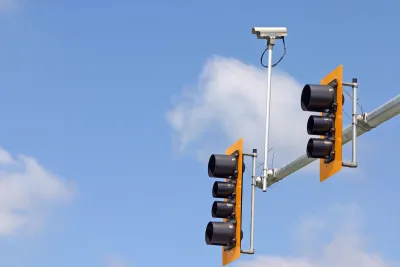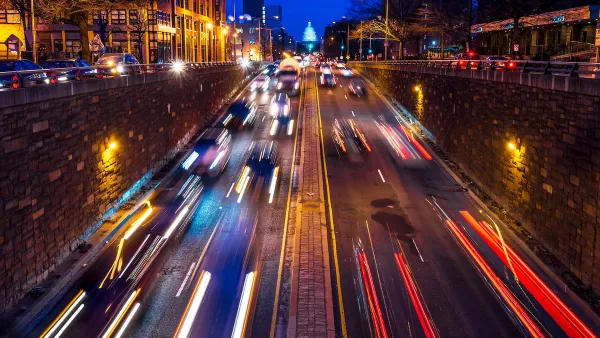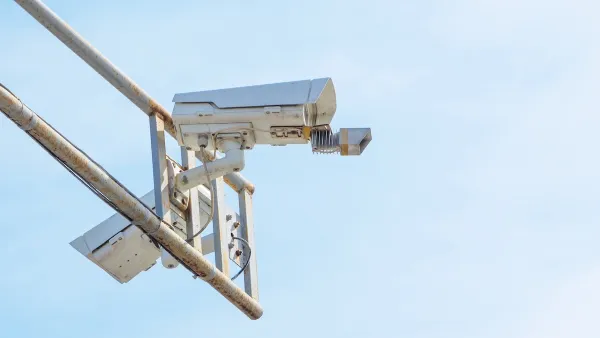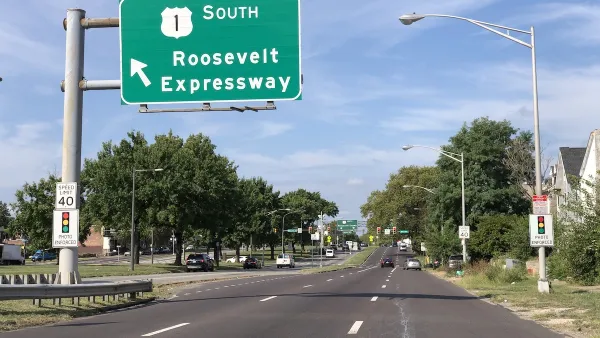Residents are wary of the new technology’s potential for surveillance, but support boosting enforcement while reducing interaction with police.

A new report outlines the opinions expressed by Boston community members in a series of focus groups that sought to understand how Black residents view the city’s road safety and traffic enforcement policies. Writing in Streetsblog Massachusetts, Christian MilNeil outlines the report’s findings.
Researcher Lindiwe Rennert, the study’s author, “found widespread agreement that the current system is not working well, particularly in Black communities, which face higher crash risks both from police violence and from dangerous roads.” But residents also expressed concern over violent interactions with law enforcement.
“The big takeaway was, cameras don’t have guns.” According to Rennert, “While there are civil liberties concerns associated with camera-based enforcement, the concern is de-escalated from loss of life, to an abuse of information. Both are important, but the scale is unquestionably different.” But participants also said new technology could set up new methods of surveillance and perpetuate discriminatory systems.
Based on the focus groups, Rennert makes some suggestions to lawmakers to implement successful automated enforcement programs: ensure fine revenues are directed to street safety and public transit, establish external oversight, limit how much cameras can see, use trusted agencies, and “right-size the penalty” to prevent outsized punishment for minor infractions.
FULL STORY: ‘Cameras Don’t Have Guns’ – Boston’s Black Community Weighs In On Camera-Based Traffic Enforcement

National Parks Layoffs Will Cause Communities to Lose Billions
Thousands of essential park workers were laid off this week, just before the busy spring break season.

Retro-silient?: America’s First “Eco-burb,” The Woodlands Turns 50
A master-planned community north of Houston offers lessons on green infrastructure and resilient design, but falls short of its founder’s lofty affordability and walkability goals.

Delivering for America Plan Will Downgrade Mail Service in at Least 49.5 Percent of Zip Codes
Republican and Democrat lawmakers criticize the plan for its disproportionate negative impact on rural communities.

Test News Post 1
This is a summary

Test News Headline 46
Test for the image on the front page.

Balancing Bombs and Butterflies: How the National Guard Protects a Rare Species
The National Guard at Fort Indiantown Gap uses GIS technology and land management strategies to balance military training with conservation efforts, ensuring the survival of the rare eastern regal fritillary butterfly.
Urban Design for Planners 1: Software Tools
This six-course series explores essential urban design concepts using open source software and equips planners with the tools they need to participate fully in the urban design process.
Planning for Universal Design
Learn the tools for implementing Universal Design in planning regulations.
EMC Planning Group, Inc.
Planetizen
Planetizen
Mpact (formerly Rail~Volution)
Great Falls Development Authority, Inc.
HUDs Office of Policy Development and Research
NYU Wagner Graduate School of Public Service





























